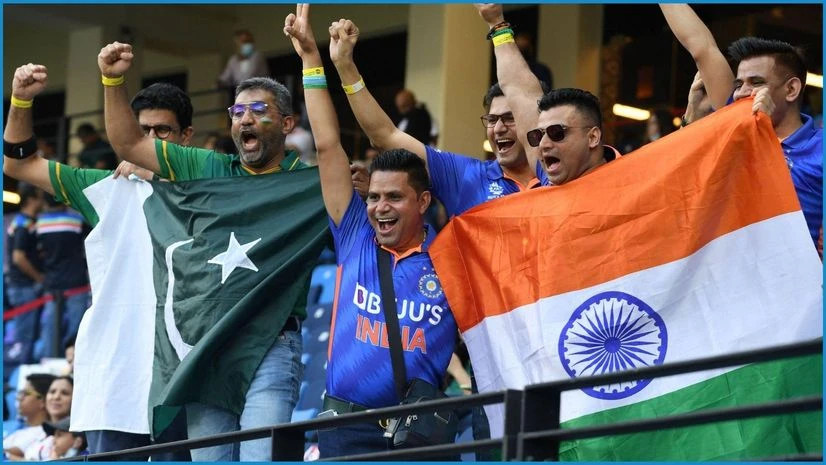No cricket match draws global attention like an India vs Pakistan clash. The fierce competition between the two nations traces its roots to the partition of British India in 1947, a historical event that laid the foundation for a rivalry steeped in emotion, politics, and national pride. While Pakistan has expressed its desire for India to visit for the International Cricket Council (ICC) Champions Trophy 2025, the Board of Control for Cricket in India (BCCI) recently informed the Pakistan Cricket Board (PCB) that the Indian cricket team would not travel to Pakistan, following advice from the Indian government.
With the India-Pakistan cricket rivalry deeply rooted in the politics of the two nations, Business Standard examines its origins and how it has been shaped by internal politics, wars, and terrorist attacks.
1952: The beginning of cricketing battles
The India-Pakistan cricket rivalry began in 1952-53, with Pakistan touring India for their first five-match Test series. A year later, India visited Pakistan, but the series ended in a stalemate, with no wins across five Tests. Similar results followed in the 1955 and 1960-61 series, as both teams struggled to dominate on the field amid rising off-field tensions.
Wars and a decade-long pause
The wars of 1965 and 1971 halted cricketing ties for over a decade. It wasn’t until 1978 that cricket resumed, as leaders on both sides sought to normalise relations. However, political strife continued to influence the nature and frequency of encounters, leading to sporadic series and cricket diplomacy, such as the visit of Pakistani President Zia-ul-Haq during a Test match in Jaipur.
Sharjah and neutral venues: The rise of limited-overs rivalry
More From This Section
From the late 1980s to the 1990s, neutral venues like Sharjah and Toronto became the battlegrounds for India-Pakistan matches, with tournaments like the Austral-Asia Cup and Friendship Cup drawing huge crowds. Sharjah, often called Pakistan’s "backyard," became a hub for thrilling contests.
World Cups and suspensions
The advent of multinational tournaments like the Cricket World Cup and ICC T20 World Cup intensified the India-Pakistan rivalry. However, cricket ties were repeatedly suspended due to political tensions, such as during the 1999 Kargil War and the 2008 Mumbai attacks.
Vajpayee’s peace initiative: A historic breakthrough
In a rare moment of diplomatic warmth after the 1999 Kargil War and the 2001 attack on the Indian Parliament, Indian Prime Minister Atal Bihari Vajpayee and Pakistani President Pervez Musharraf initiated a bold peace process. This led to India touring Pakistan in 2004 for the first time in 14 years, featuring a five-match One Day International (ODI) series and a three-match Test series, with India winning in both formats, marking a historic moment in cricket and bilateral relations.
The 2009 Lahore attack: A decade-long shadow
The 2009 terrorist attack on the Sri Lankan cricket team in Lahore cast a long shadow over Pakistan's ability to host international cricket. The incident led to a decade-long suspension of Test matches in the country and cost Pakistan its co-hosting rights for the 2011 Cricket World Cup. It also deepened India’s reluctance to engage in bilateral cricket ties, further straining relations.
Manmohan Singh and Yousuf Raza Gilani: Cricket as a bridge
Peace efforts continued under Indian Prime Minister Manmohan Singh. During the 2011 ICC Cricket World Cup, India and Pakistan faced off in the semi-final, a match charged with geopolitical significance. Singh extended an olive branch by inviting Pakistani Prime Minister Yousuf Raza Gilani to watch the game together, reinforcing cricket's role as a diplomatic tool. India won the semi-final, rekindling hopes for better relations.
Attempts to revive bilateral cricket
Following the diplomatic gesture at the 2011 World Cup semi-final, the BCCI invited Pakistan for a brief series in 2012, marking a cautious resumption of cricket ties. However, despite efforts to formalise bilateral series, including a 2014 agreement for six series over eight years, political tensions and security concerns repeatedly derailed plans. By 2017, the BCCI declared that government approval would be required before any future series could proceed, stalling further progress.
Iconic moments amid rivalry
Despite the challenges, there were unforgettable moments, such as Pakistan’s first win over India in a World Cup in 2021 after 13 attempts. Bilateral ties resumed briefly in 2012, but subsequent attempts to organise series were hindered by political deadlocks.
Asia Cup drama and hybrid models
The rivalry took a new turn in 2023, with the Asia Cup adopting a hybrid model due to India’s refusal to play in Pakistan. Matches were split between Pakistan and Sri Lanka, highlighting the ongoing difficulties of hosting these high-stakes encounters. A similar arrangement is expected for the 2025 Champions Trophy, with India likely to play their matches in the United Arab Emirates.
Pakistani legends like Wasim Akram have often noted the eagerness of fans in Pakistan to see Indian stars like Virat Kohli, Rohit Sharma, and Jasprit Bumrah play in their country. Former Indian cricketers have shared stories of Pakistani fans' immense love and admiration for Indian players. However, it has been over two decades since India last toured Pakistan.

)